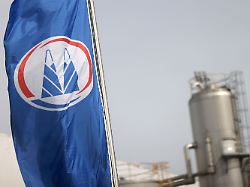More lawsuits pending decision
Sugar cartel has to pay millions in damages
6/23/2023, 6:52 p.m
The Bundeskartellamt accuses the big sugar manufacturers of years of price fixing. In two pilot cases, food companies are awarded millions in damages. A further 40 cases are pending.
The major sugar manufacturers Südzucker, Nordzucker and Pfeifer & Langen are to pay millions in damages because they collected sugar prices that were too high after cartel agreements. The district court of Mannheim ruled in the afternoon that Nestlé Deutschland AG is entitled to around 8.4 million euros and Molkerei Alois Müller GmbH & Co. KG around 6.3 million euros each plus interest of a similar amount. The verdicts are not yet final, as the parties can appeal, said a court spokesman.
In its judgments, the court found that the prices for processed sugar in Germany were about two percent higher from 1997 to September 2009 because of the sugar cartel. It thus followed the assessment of an economic expert. The manufacturers denied that their customers suffered any damage.
The Federal Cartel Office imposed a fine in 2014
The processes are two pilot processes. According to the court, around 40 antitrust lawsuits from various food and beverage manufacturers are pending at the Mannheim Regional Court. They are demanding a total of several hundred million euros. Now the plaintiffs have to decide how to proceed. In 2014, the Bundeskartellamt imposed fines totaling 280 million euros on the Mannheim-based manufacturer Südzucker, Nordzucker from Braunschweig and Pfeifer & Langen (Diamant-Zucker), based in Cologne, for agreeing on areas, quantities and prices. From the Cartel Office’s point of view, the companies agreed on sales areas, quotas and prices over a period of several years up to 2009.
In Cologne, among other places, there were corresponding lawsuits by dairies, pastry and delicatessen manufacturers and breweries against the sugar manufacturers. The district court of Cologne rejected them in 2020. The court ruled at the time that tacit coordination between the sugar manufacturers could have been expected in the market for processed sugar, even without anti-trust violations.
